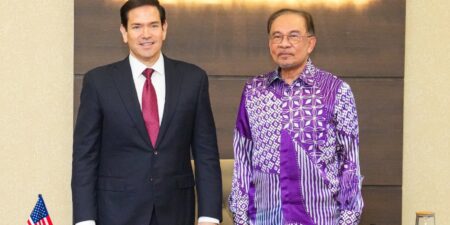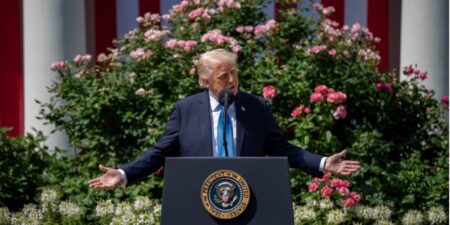On November 16, 2020, BGA Indonesia Deputy Managing Director Alisha Sulisto (pictured on the bottom center of the screenshot) participated in a virtual conference with the Perth USAsia Centre think tank known as the Western Australia-ASEAN Trade and Investment Dialogue, a series designed to promote engagement between the Western Australia business community and its ASEAN counterparts.
The theme for this year’s session – the third in an annual series – was “WA and ASEAN: A Shared Economic Recovery,” emphasizing post-Covid-19 economic and business recovery opportunities as well as strengthening supply chains with secure and reliable training partners. In her session, Sulisto was joined by moderator and Perth USAsia Centre founding CEO Gordon Flake, Western Australia Minister for Asian Engagement Peter Tinley and fellow speaker Emma Connors, Southeast Asia correspondent for the Australian Financial Review.
In their comments, both Tinley and Flake reaffirmed the importance of ties between Western Australia and Southeast Asian countries that the series aims to support, particularly as policymakers and experts look to shape a post-Covid-19 landscape. In her remarks, Sulisto noted that ASEAN economies had actually managed the pandemic well, and had looked to get past the “zero-sum” notion mentioned in other contexts of either prioritizing a hardline pandemic response or putting economic growth first. She also suggested that Covid-19 and other disruptions, including the U.S.-China trade war, had reinforced the fact that Western Australian businesses should look to diversify supply chains and their consumer base and tap into new markets, including in Southeast Asia, as Asia becomes the next driver of global growth.
Sulisto’s remarks also focused particularly on Indonesia – Southeast Asia’s largest economy, a member of the G-20, and the world’s fourth most populous nation. Though she noted that Indonesia had been able to leverage key internal and external developments to enhance its competitiveness before the pandemic hit, including the omnibus law and the milestone Indonesia-Australia Comprehensive Economic Partnership (IA-CEPA), she also added that Jakarta needed to up its game due to lingering concerns about the pandemic in country as well as an evolving competitive context. “With heightened competitiveness in the region,” Sulisto said, “I worry that the political capital spent by the Indonesian government won’t produce the return on investment the government so desperately wants.”
Overall, despite lingering challenges, Sulisto said that Indonesia represented a case within Southeast Asia where despite the government’s shortcomings in addressing the pandemic, it remained committed to working with the world rather than turning inward. As such, she emphasized that companies should continue to be engaged and recognize such goodwill, along with the broader point that Southeast Asia will continue to be a key driver of Asia’s growth in the coming years including as the region seeks to navigate a post-Covid-19 future.

BowerGroupAsia



























